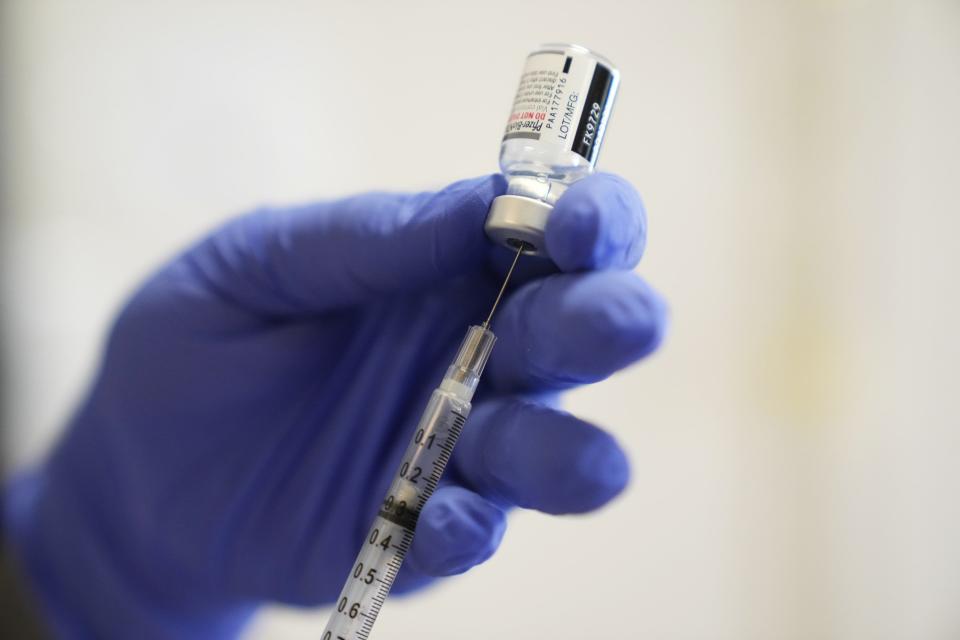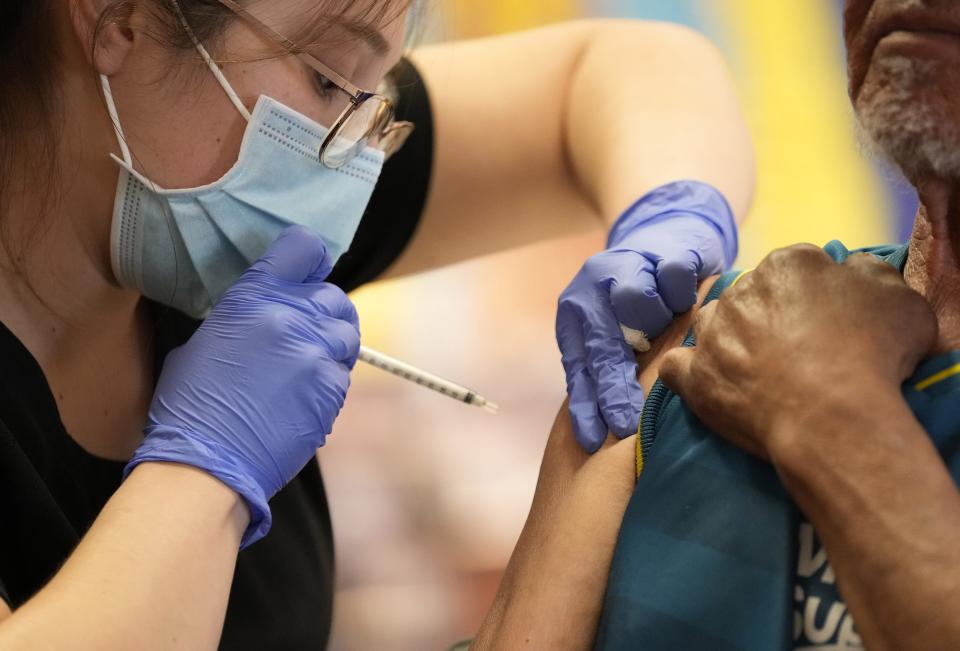COVID-19 cases are rising in Arizona. Here's what you should know
As summer temperatures rise across Arizona, so do the number of COVID-19 cases.
Experts say the wave of positive cases is caused by the high transmission rate of the emerging KP.3 variant.
The state reported an increase of at least 76% in reported positive COVID-19 cases compared with this time last year, according to Joel Terriquez, Arizona Department of Public Health Services infectious disease and immunizations medical director.
Terriquez said the state is seeing about 2,500 new positive COVID-19 cases per week. The three-year average for the week of June 30 is 7,829 positive COVID-19 cases.
Here’s what you need to know about the summer COVID-19 surge.
What COVID-19 variant represents the rise in positive tests?
The SARS-CoV-2 virus variant KP.3 is on the rise in the U.S. and active in Arizona.
The KP.3 variant is a family member of the FLiRT group, which are both descendants from the JN.1 variant. The Centers for Disease Control and Prevention found in a recent data collection that 25% percent of all COVID-19 cases in the U.S. are from KP.3.
What should I make of the COVID-19 case numbers?
The available number of positive COVID-19 cases underestimate the number of cases in Arizona because most cases are not reported to health authorities.
"Whatever we get reported is just a small proportion of reality because not everyone gets tested,” Terriquez said. “Not everyone goes to the doctor for flu-like symptoms or respiratory symptoms.”
Nick Staab, assistant medical director for Maricopa County Department of Public Health, said the county monitors the levels of COVID-19 through wastewater testing at treatment plants. An increase of COVID-19 has been detected in wastewater regionally, he said.
The U.S. Centers for Disease Control and Protection reports the data of the U.S.’s COVID-19 detection in wastewater. Testing wastewater can identify a virus’ spread in a community earlier than clinical testing, the agency said.
What symptoms can I expect from KP.3?
While the transmission of KP.3 is high, the variant is not causing severe illness for those who have healthy immune systems, experts said.
Terriquez said the low number of COVID-19-related deaths and hospitalizations in Arizona supports the conclusion that symptoms of KP.3 aren't serious for healthy individuals.
“Even though we know that this specific variant can be more easily transmissible from one individual to another, complications associated with COVID-19 infections are way lower than previous seasons,” Terriquez said.
Health professionals like Dan Quan, a Valleywise Health emergency medicine physician, said he sees patients daily who visit the emergency room with cold or flu-like symptoms and test positive for COVID-19.
Quan said people who are immunocompromised or have a severe illness should remain vigilant if they contract COVID-19.
“I think we need to make sure that people understand people are still dying, but I think some things out there that we see are ‘that it's really not bad, it’s like a cold now,’" he said.
"Well, it is for healthy individuals, it's like a cold, but for those who are immunocompromised or who have cancer — if they get any infection, they certainly can succumb to COVID-19 still,” he said.
Hospitalizations in the U.S. increased 13% compared with the same period a year ago, the CDC reported from data collected from June 8-29. COVID-19-related deaths remain low, with 25% fewer compared with the same time in 2023.
Common COVID-19 symptoms right now
Here are some symptoms that someone who has COVID-19 could experience, according to the CDC:
Fever or chills
Cough
Shortness of breath or difficulty breathing
Fatigue
Muscle or body aches
Headache
New loss of taste or smell
Sore throat
Congestion or runny nose
Nausea or vomiting
Diarrhea
How do I protect myself from COVID-19?
Going back to the basics of COVID-19 etiquette from the start of the pandemic will help individuals stay virus-free, experts say.
Staab said general distancing from crowded areas is a good strategy to help prevent COVID-19.
“If you're sick, stay home, stay away from others,” he said. “If you are in high risk, and you develop symptoms, go out, take a COVID-19 test, because the sooner that you find out that it's COVID-19, the best our antivirals will respond to prevent severe infections.”
The CDC recommends people stay up to date with their COVID-19 vaccines and practice good hygiene. Good air circulation where they live can help lower transmission of the virus.
“As we see this virus evolve over time, we expect that it will become less severe as other coronaviruses that cause infections in people,” he said. “We're not seeing nearly as many hospitalizations as we've seen during past summer surges.”
How long should I stay home if I get COVID-19?
Isolation periods now vary depending on the severity of someone's COVID-19 case.
The CDC's updated guidance from March addresses COVID-19 along with common respiratory illness, such as RSV or influenza.
The guidance recommends people with respiratory virus symptoms isolate at home for at least 24 hours after their fever and overall symptoms improve.
People who test positive for COVID-19 might need to add five additional days of "interventions," which the CDC says are masking, testing, distancing, improved air quality, hygiene and testing, to reduce its spread.
This article originally appeared on Arizona Republic: COVID-19 variant KP.3 remains dominant as cases rise in AZ


